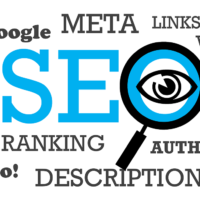Best Free Blogging Sites
In 2025, the digital landscape offers a multitude of free blogging platforms, each tailored to diverse needs and skill levels. Whether you’re a novice seeking simplicity or an experienced blogger desiring advanced features, there’s a platform suited for you. Below is an extensive guide to 21 of the best free blogging sites available this year.
1. WordPress.com
Overview: WordPress.com remains a dominant force in the blogging world, offering a user-friendly interface complemented by a vast array of themes and plugins. It’s ideal for bloggers who seek a balance between ease of use and customization.
Pros:
Extensive theme library
Shorthand Content Marketing
+2
WPBeginner
+2
ThemeIsle
+2
Built-in SEO tools
Active community support
Blogging Wizard
Cons:
Limited customization on the free plan
Lifewire
+1
Blogging Wizard
+1
Displays WordPress.com ads unless upgraded
Ideal For: Beginners and those looking for a straightforward blogging experience.
2. Blogger
Overview: Powered by Google, Blogger offers a no-frills blogging experience. Its integration with other Google services makes it a convenient choice for those already embedded in the Google ecosystem.
QuickCreator
Pros:
Seamless integration with Google Analytics and AdSense
QuickCreator
Simple and intuitive interface
Reddit
+2
QuickCreator
+2
Blogging Wizard
+2
Free hosting with a Blogspot subdomain
QuickCreator
Cons:
Limited template options
Less frequent updates and new features
Ideal For: Casual bloggers and those seeking a straightforward platform without many bells and whistles.
3. Wix
Overview: Wix is a versatile website builder that includes robust blogging capabilities. Its drag-and-drop editor allows for extensive design customization without the need for coding knowledge.
Pros:
Highly customizable design templates
Extensive app market for added functionality
Mobile-responsive designs
Cons:
Wix branding on free sites
Storage limitations on free plans
Ideal For: Visual artists, small business owners, and bloggers who prioritize design flexibility.
4. Medium
Overview: Medium emphasizes content and community over customization. It’s designed for writers who want their work to reach a built-in audience without worrying about site design.
Pros:
Access to a large, engaged readership
QuickCreator
Clean, distraction-free writing environment
wix.com
+4
LinkedIn
+4
Shorthand Content Marketing
+4
Potential for monetization through the Partner Program
Cons:
Limited branding and customization options
Content is hosted on Medium’s domain
Ideal For: Writers focused on content creation and audience engagement rather than site customization.
5. Weebly
Overview: Weebly offers a simple drag-and-drop interface, making it easy for users to create blogs and websites without technical expertise. It provides a range of responsive themes suitable for various niches.
Pros:
User-friendly design tools
Integrated e-commerce features
Mobile-responsive templates
Cons:
Limited customization compared to competitors
Blogging Wizard
Weebly branding on free sites
Ideal For: Small businesses and individuals seeking an easy-to-use platform with e-commerce capabilities.
wix.com
6. Tumblr
Overview: Tumblr combines microblogging with social networking, allowing users to post short-form content, multimedia, and engage with a community through reblogs and likes.
Pros:
Strong community engagement
Supports various content types (text, images, videos, GIFs)
Highly customizable with HTML and CSS
Cons:
Less suitable for long-form content
Limited monetization options
Ideal For: Creative individuals and those interested in microblogging and multimedia content.
7. Ghost
Overview: Ghost is an open-source platform focused on professional publishing. It offers a minimalist writing experience and is optimized for speed and SEO.
Pros:
Clean and intuitive user interface
Built-in SEO and social sharing features
Supports membership and subscription models
Cons:
Requires self-hosting for the free version
Limited themes and plugins compared to WordPress
ThemeIsle
+5
LinkedIn
+5
WPBeginner
+5
Ideal For: Professional bloggers and publishers seeking a streamlined platform with monetization capabilities.
8. Squarespace
Overview: Known for its sleek designs, Squarespace offers an all-in-one platform for creating blogs, portfolios, and online stores. While primarily a paid service, it offers a free trial for users to explore its features.
Pros:
High-quality, designer templates
Comprehensive all-in-one platform
24/7 customer support
Cons:
No free plan, only a trial period
9. Penzu
Overview: Penzu is a digital journaling platform that offers a private space for personal reflections and notes. It’s designed to mimic the experience of writing in a physical journal, with added digital conveniences.
Pros:
Strong emphasis on privacy and security
Customizable journal covers and backgrounds
Lifewire
Mobile apps for on-the-go journaling
Cons:
Limited public sharing capabilities
Advanced features require a paid upgrade
Ideal For: Individuals seeking a private, digital journaling experience.
10. Strikingly
Overview: Strikingly is a website builder that focuses on creating single-page websites, making it suitable for personal blogs, portfolios, and small business sites.
Pros:
Easy-to-use interface with drag-and-drop functionality
Mobile-optimized designs
QuickCreator
+2
Blogging Wizard
+2
wix.com
+2
Free plan includes basic analytics
Cons:
Limited to single-page layouts on the free plan
Strikingly branding on free websites
Ideal For: Users looking to create simple, elegant single-page websites quickly.
11. HubPages
Overview: HubPages is a network of sites where users can publish articles on various topics. It offers a community-driven platform with opportunities for monetization through ad revenue.
Pros:
Built-in audience and community engagement
Potential for earnings through ad partnerships
Reddit
+2
futuregenapps.com
+2
WPBeginner
+2
Support for a wide range of content topics
Cons:
Limited control over site design and branding
Earnings are dependent on traffic and ad clicks
Shorthand Content Marketing
Ideal For: Writers interested in publishing articles and earning passive income through ad revenue.
12. LiveJournal
Overview: LiveJournal combines blogging with social networking, allowing users to create journal entries and connect with a community. It has a long-standing history and a diverse user base.
Pros:
Strong community interaction through groups and friends lists
Supports various content types, including text, images, and polls
Privacy controls for individual posts
Cons:
Outdated interface compared to modern platforms
Lifewire
Limited customization options
Ideal For: Users seeking a community-centric platform with journal-style blogging.
13. Yola
Overview: Yola is a website builder that offers tools to create professional-looking websites and blogs without coding knowledge. It provides a range of templates and customization options.
Pros:
User-friendly drag-and-drop editor
Free hosting with Yola subdomain
Integrated e-commerce features
Cons:
Limited storage and bandwidth on the free plan
Yola branding on free websites
wix.com
+1
QuickCreator
+1
Ideal For: Small businesses and individuals looking to create a professional online presence.
14. Webflow
Overview: Webflow is a design-centric website builder that offers advanced customization capabilities, blending the ease of visual design with the flexibility of coding.
Pros:
Highly customizable with a visual CSS editor
Responsive designs optimized for various devices
CMS capabilities for dynamic content
Cons:
Steeper learning curve for beginners
Free plan includes Webflow branding
Ideal For: Designers and developers seeking a platform that offers both visual design tools and code-level customization.
15. Site123
Overview: Site123 offers a straightforward website building experience, focusing on simplicity and speed. It’s designed for users who want to get a site up and running quickly without technical hassles.
Pros:
Quick setup with guided prompts
Responsive templates suitable for various industries
Free plan includes basic SEO tools
Cons:
Limited design flexibility
Site123 branding on free websites
Ideal For: Individuals and small businesses needing a simple, no-fuss website solution.
16. Joomla
Overview: Joomla is an open-source content management system that offers extensive customization options. It’s suitable for creating complex websites and blogs with advanced functionality.
Pros:
Flexible and scalable for various types of websites
Large library of extensions and templates
Strong community support
Cons:
Requires a separate hosting plan
Steeper learning curve compared to other platforms
Ideal For: Developers and users with technical expertise looking to build complex, feature-rich websites.
17. WordPress.org
Overview: WordPress.org is the self-hosted version of WordPress, offering complete control over website customization and functionality. It’s the most popular
18. Contentful
Overview: Contentful is a headless content management system (CMS) that enables users to create, manage, and distribute content across multiple platforms. Unlike traditional blogging platforms, Contentful focuses on providing content infrastructure for digital teams to deliver content across various channels.
Pros:
API-first approach allows for flexible content delivery
Supports multiple content types and structures
Scalable architecture suitable for growing projects
Cons:
Steeper learning curve for non-developers
Limited built-in front-end presentation; requires additional development
Ideal For: Businesses and developers seeking a robust CMS to manage and deliver content across various platforms and devices.
19. Typepad
Overview: Typepad is a blogging service that offers a user-friendly interface with various design templates. It provides integrated analytics and monetization options, making it a comprehensive platform for bloggers.
Pros:
Easy-to-use dashboard with intuitive controls
Customizable design templates
Shorthand Content Marketing
+2
Jetpack
+2
TechRadar
+2
Built-in analytics to track blog performance
WPBeginner
Cons:
Primarily a paid service with limited free options
Less flexibility compared to open-source platforms
Ideal For: Bloggers seeking a straightforward platform with integrated tools for design, analytics, and monetization.
20. Postach.io
Overview: Postach.io is a unique blogging platform that allows users to create blogs directly from their Evernote notes. By tagging notes with ‘published,’ they are instantly transformed into blog posts.
Pros:
Seamless integration with Evernote
Quick setup and easy content publishing
Blogging Wizard
+3
TechRadar
+3
WPBeginner
+3
Supports various content types, including text, images, and videos
Cons:
Limited customization options
Dependent on Evernote for content management
Ideal For: Evernote users looking for a simple way to publish their notes as blog posts.
21. Write.as
Overview: Write.as is a minimalist blogging platform focused on privacy and distraction-free writing. It allows users to publish content anonymously without the need for an account.
Pros:
Clean, distraction-free writing environment
No sign-up required for anonymous publishing
Emphasis on user privacy
Cons:
Limited features compared to more robust platforms
Minimal customization options
Ideal For: Writers seeking a simple, privacy-focused platform for anonymous or pseudonymous publishing.
Key Considerations When Choosing a Free Blogging Platform
When selecting the best free blogging site for your needs, consider the following factors:
Ease of Use: Ensure the platform has an intuitive interface that matches your technical skill level.
Customization: Look for platforms that offer design flexibility to create a unique and personalized blog.
Monetization Options: If you plan to earn from your blog, check if the platform supports monetization through ads or subscriptions.
SEO Features: Search engine optimization tools can help increase your blog’s visibility.
Support and Community: Access to support and an active user community can be invaluable for troubleshooting and advice.
Finally
Choosing the right blogging platform is crucial to your success as a blogger. Each of the platforms listed offers unique features tailored to different needs and skill levels. Assess your goals, technical abilities, and the type of content you wish to produce to select the platform that aligns best with your blogging aspirations.








